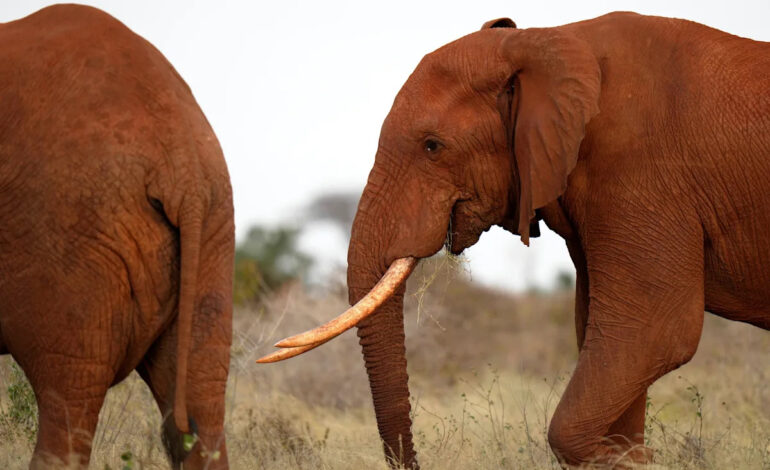Kenyan Farmers Utilize Bees and Sesame to Deter Elephants

Farmers in the Taita hills of southern Kenya are finding innovative ways to protect their crops from elephants, which have become a significant threat to agriculture and safety in the region. Using a combination of bees and sesame plants, these farmers aim to deter the large animals while maintaining their livelihoods.
For Richard Shika, a 68-year-old farmer, encounters with elephants have been harrowing. “One time, I was trying to chase away an elephant that was in my maize field, but it turned and charged me,” he recalls. Fortunately, he managed to evade the charging animal, but the dangers are real. Just two years prior, a three-year-old girl was tragically killed by an elephant in Taita Taveta, highlighting the escalating risks faced by local communities.
The Taita hills are nearly encircled by Kenya’s largest national parks—the Tsavo East and Tsavo West. These parks, which have no fences, allow elephants to roam freely, often leading them into human settlements. According to Yuka Luvonga, a researcher with the conservation group Save The Elephants, the development of infrastructure by humans has disrupted traditional migration paths for elephants.
With elephants consuming around 150 kilograms (approximately 330 pounds) of vegetation daily, keeping them away from farms is challenging, especially during times of food scarcity. “Elephants are clever creatures,” says Shika. “They will try touching a fence, and once they realize that it is not electrified, they charge through.”
The Kenya Wildlife Service and various conservation organizations estimate that around 30-35 people are killed each year in conflicts with elephants across the country. In response, some communities resort to retaliatory measures, including spearing or poisoning the animals. However, farmers in Taita Taveta are pursuing alternative, less lethal solutions.
One successful approach involves the use of bees. “Elephants don’t like getting stung by bees, so they keep away from areas where hives are,” Shika explains. With support from Save The Elephants, he is among 50 farmers who have installed beehives on wires strung between poles surrounding their fields. When an elephant brushes against the wire, the hives sway, disturbing the bees. This creates a formidable barrier that effectively keeps elephants at bay.
“This year, I’ve made almost $250 selling honey,” Shika adds, highlighting a dual benefit of the beekeeping initiative.
Farmers are also changing their crops to reduce the likelihood of attracting elephants. Traditional crops like maize and watermelons are favorites among these large animals, while sesame plants emit a scent that repels them. Gertrude Jackim, a 70-year-old farmer, has transitioned from maize and green grams to sesame, finding it a practical solution. “Look at me, I’m aging, so I can’t fend off the elephants or chase them away,” she states. She is one of 100 farmers supported to adopt sesame production, which has proven essential as elephant incursions have intensified over the years.
These innovative farming practices foster coexistence between humans and elephants. As conservationists strive to mitigate human-elephant conflict, they emphasize the necessity of changing community attitudes towards these majestic animals. “We have to live harmoniously with these elephants,” says Luvonga. “Creating awareness and sensitizing the communities is crucial for changing perceptions.”
Such initiatives provide a sustainable path forward, allowing both farmers and elephants to thrive in a shared environment. As these communities adapt their strategies, the hope is to cultivate a peaceful coexistence that benefits all parties involved in Taita Taveta.






